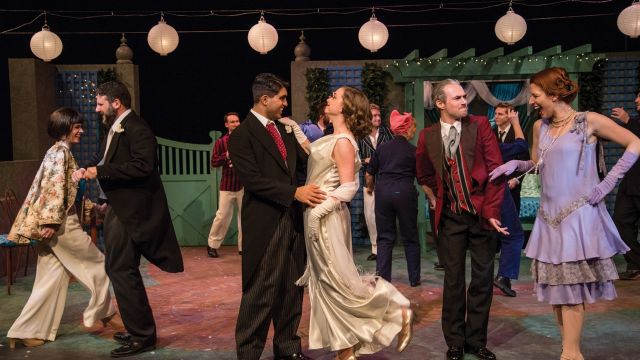Much Ado About Nothing
This universal Shakespearean tale, generally classed as one of Shakespeare’s comedies, has a strong element of emotional seriousness that challenges acting ability every bit as much as its comedic moments do. Light moments certainly exist in profusion; but jolly camaraderie between superior and inferior officers holds an uneasy truce with military requirements of obedience, and lovers’ suspension of disbelief in magic easily yields to mistaken jealousy and rash response. The balance between levity and gravity is a challenge; adversity easily becomes melodrama; and the mistake of overacting, especially in the comic scenes, is a difficult one for actor, actress, and director to draw back from.
As well, the language of Shakespeare, being as old as it is, requires especially patient actors to communicate fully; it must be spoken without overemphasis yet deliberately and naturally, with intent to communicate every word; and several players exhibited this skill very well. The surprise of the night in this regard was newcomer Marni Mount, playing Hero; but Colin Milner and Tony Turner were outstanding in pacing their deliveries perfectly and interacting genuinely with their fellow players through movement, and the performances by Jim Adamik and David Kavanagh warrant special mention for their naturalness.
The production’s evidently early 1920s setting presented an opportunity to use a mix of flapper costumes, crisp military uniforms, and masks (a device echoed in the marriage scene), but fortunately the director resisted any temptation it may have presented to alter the language to suit.
A single stage set served for the entire play: the back garden of the local duke, and an adjoining thoroughfare. That this didn’t become stale is due partly to creative use of the various entrances to the setting; partly to lively and comic use of the entire space to keep the story moving. The element of movement in the direction was particularly impressive.
Those overly sensitive to hurried delivery may wince at a few lines, and comic overacting and abruptness in one or two characters may strike some more than others; but in general the production succeeds, despite its comic intent, in drawing us in to care a little about the characters’ fates, and certainly succeeds in those comic moments conveyed with greater subtlety. This is a production that, even if you won’t remember it forever, will leave you smiling as you walk out.
John P. Harvey
Image: [front, L–R] Lainie Hart, Jim Adamik, Vivek Sharma, Marni Mount, Fraser Findlay, Bojana Kos; [rear, L–R] Joshua Bell, Bradley J McDowell, Nikki-Lynne Hunter, Michael Cooper, in Much Ado About Nothing. Photographer: Rebecca Doyle.
Subscribe to our E-Newsletter, buy our latest print edition or find a Performing Arts book at Book Nook.

